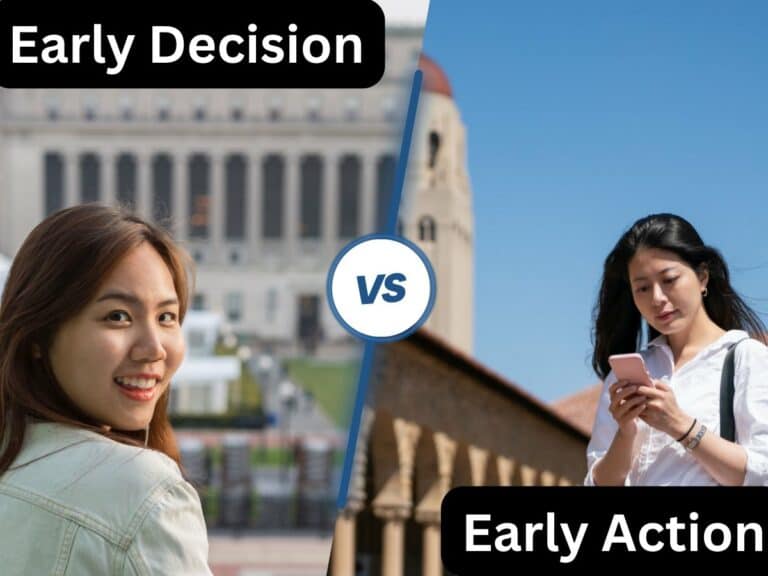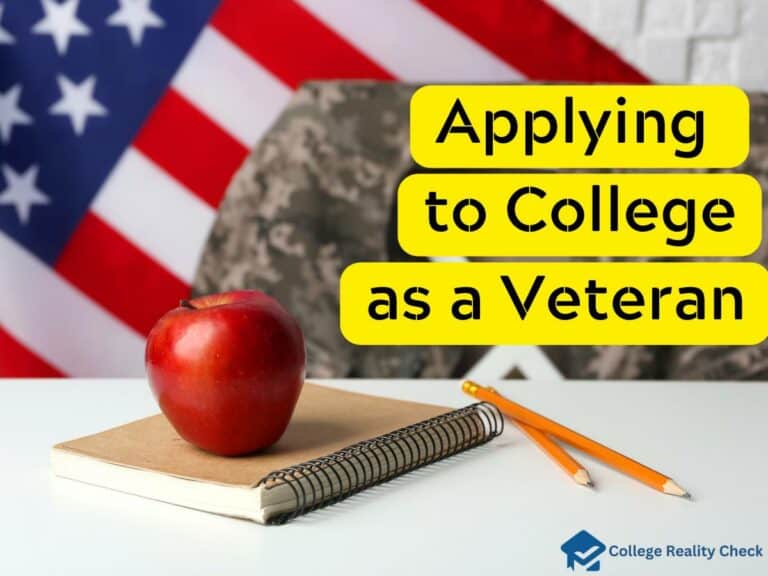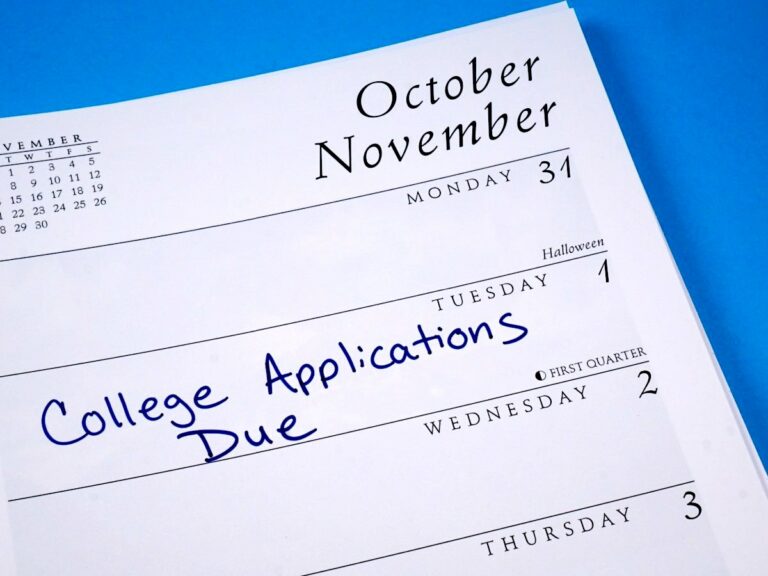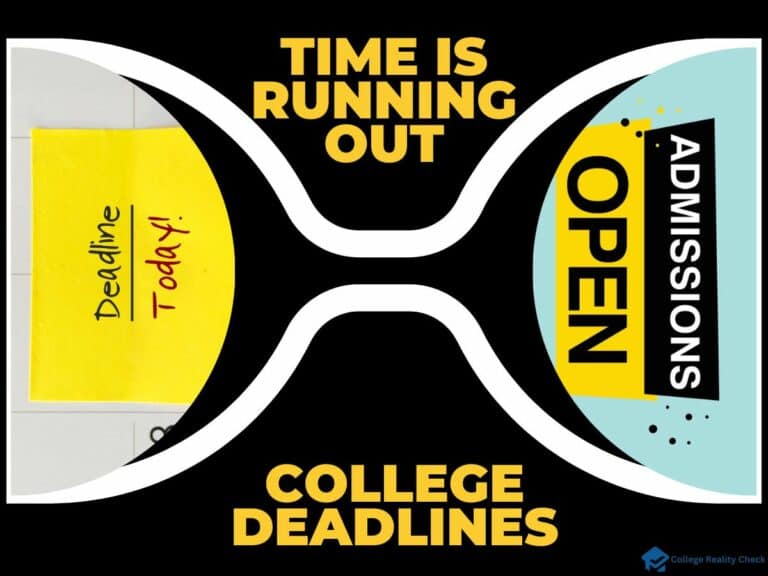Early Decision Strategy for Getting Admitted to Best College
You don’t have to wait until January next year before you start applying to a college. That’s because there is a so-called Early Decision (ED). Early Decision allows you to apply to your preferred college in November and get the result in December.
Applying ED can be approved or rejected. It can also be deferred, which means the early decision college will consider your application during regular admissions.
Clearly, the most significant advantage of applying ED is that you can get to know ahead of everybody else if you will be able to go to your favorite college.
Applying Early Decision, however, comes with stipulations that you need to know about. For instance, Early Decision is binding.
This means that you have no choice but to attend the college no matter the financial aid award. As a matter of fact, you will be asked to pay a deposit a month after getting the announcement.
Backing out is possible, but only due to things such as financial constraints, death of an immediate family member, health concerns, and an accident.
Withdrawing for invalid reasons can keep you from going to the ED college as well as other schools. It’s because of this why you should only apply Early Decision if you are 100% sure of your, well, decision.
Wrong Reasons for Applying Early Decision
The primary reason for applying Early Decision is that you are convinced that you don’t want to attend any other school than the one that you wish to apply ED too.
If, during the last year of your high school, there’s only one choice of college for you, then go ahead and feel free to apply Early Decision.
Some students, however, attempt to apply Early Decision for the wrong reasons. If you follow suit, you will surely face the consequences of declining the offer in case your ED application gets approved.
Here are some of the most common wrong reasons for applying Early Decision:
Trying to avoid stress and anxiety associated with the last semester of high school
If you believe that applying ED can keep you from being stressed and anxious, think again. You are likely to end up with more stress and anxiety if your early decision application gets approved, and you change your mind.
Wanting to focus on getting good grades before graduating high school
Just because you are through with applying to college through Early Decision doesn’t mean that you can focus only on improving your grades.
As a matter of fact, there is what’s known as senioritis. This is characterized by a drop in a high school student’s grades because he or she fails to continue to work hard after being accepted to the preferred college of his or her dreams.
The college may choose to cancel the admission due to senioritis.
Doing it because a friend or a romantic partner is applying ED
When applying Early Decision, it is a bad idea for the reason to be because your best buddy or other half is doing it. The only reason for applying ED is that you know that it’s the only school that you want to go to.
Lack of knowledge about the college or not fully committed to going there
If you wish to apply ED to your preferred college, it is expected that you have researched the school extensively and that you are totally committed to going to it.
Changing your mind after getting the approval can lead to your being blacklisted to the college. Other schools may decline your application, too.
If any of these is your reason for applying Early Decision, cancel your plan. On the other hand, feel free to apply ED if you are 100% sure that you want to attend that college.
Applying early education can keep you from comparing financial aids that different colleges offer, so make sure that you can matriculate.

Strategies for Getting Admitted to the Best College
It goes without saying that the school that you wish to apply Early Decision to is the best in your eyes. This is why applying ED should be done only if you don’t see yourself getting your college degree from another school.
Applying Early Decision, in other words, signifies that you have made up your mind completely.
Unfortunately, it’s not always that colleges approve ED applications. This means that yours may be deferred or denied. Especially if it’s denied, it could be devastating.
The good news is that there are some things that you may do to help increase your chances of going to the college that you want.
If there’s one thing that you should avoid, it’s applying Early Decision and then doing nothing else. Failure to take other steps may keep you from being admitted to any of your preferred colleges.
Here are some early decision strategies that you may give a try when it’s time to apply to college:
Apply Early Decision, and then wait for the result to be released the next month
One of the nicest things about applying ED is that the Decision from the college admissions officer is released earlier than the usual notification date.
Schools usually start welcoming early decision applications from November 1 to 15. The results are usually released by December 15.
This is why some high school students who are experiencing lots of stress and anxiety with regard to college applications apply ED — the earlier that they get the verdict, the sooner that they can focus back on the rest of high school.
However, just like what’s earlier mentioned, it is a bad idea for you to apply Early Decision just because you want the task of applying to college done and over with.
Apply Early Decision and apply Early Action, too
Unlike Early Decision, Early Action (EA) is not binding.
This only means that you can apply EA without having to go the college that approves you. Also, helping to eliminate pressure is the fact that you have up to May 1 to make your decision just in case your early action application gets approved by the college.
By applying ED as well as EA, there is no need to worry about Early Action colleges as you are not obliged to go to them. On the other hand, you are obliged to go to an early decision school because it is binding. That is unless you have a valid reason to back out.
Apply Early Decision, apply Early Action, and apply Regular Decision (if your ED application is declined)
Provided that you apply Early Decision to only one college, you can apply early action to as many colleges as you want.
However, don’t forget that you may also apply Regular Decision later on just like everybody else in high school. Usually, applying RD happens early in January, and the results are released sometime in March.
Applying Regular Decision is always an option if your ED and EA are all denied. There are various advantages to applying Regular Decision. They include having plenty of time to complete applications and retaking exams.
However, there are some disadvantages to it, too. They include less time to prepare for college and having lots of tasks to carry out before high school ends.
Apply Early Decision and apply Regular Decision later on
For many students, applying ED can cause stress and anxiety.
That’s because it could feel like the end of the world just in case their applications get rejected — knowing that the results will be released the next month adds to the tension.
This is why some students who apply for ED skip applying early action as they no longer want to have additional stress.
If you are not 100% sure that your ED application will be approved and you want to spare yourself of the stress and anxiety related to applying EA, then wait for January to arrive and then start sending applications to other schools.
No matter which of the strategies mentioned above that you prefer, always make sure that you choose from schools that you wish to attend.
Never send applications, especially Early Decision, and Early Action, to schools that you are not planning to attend because that will only waste your time and money, too.
And when applying ED, see to it that you are a good candidate for the college.
Disclaimer: The views and opinions expressed in this article are those of the authors and do not necessarily represent those of the College Reality Check.





